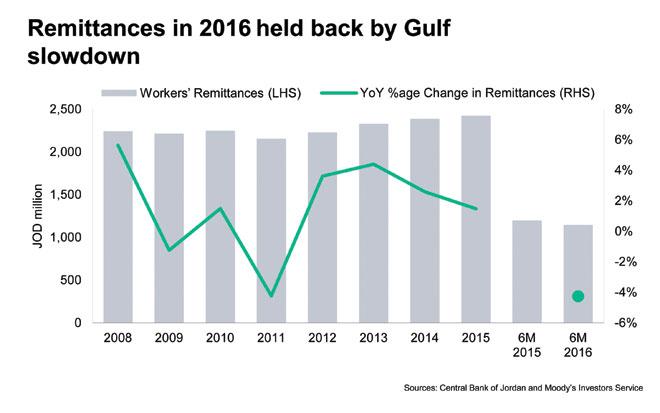You are here
Global growth to slow as populations age — Moody's
By Agencies - Aug 07,2014 - Last updated at Aug 07,2014
PARIS — As populations age around the world, economies will be held back and growth trends will slow sharply in the next 20 years, a report forecast on Thursday.
The mismatch of old people to the numbers of people at work is no longer a shadow only over advanced economies; it now extends to emerging markets as well, a report by rating agency Moody's said.
This demographic time bomb, and related drop in household savings, could reduce the trend of annual growth worldwide by 0.4 per cent by 2019, the agency warned.
Between 2020 and 2025 the impact could be "much larger", amounting to 0.9 per cent, it said.
Analysing the impact of a major shift in the age demographics of workers around the world, the agency indicated that more than 60 per cent of countries which feature in its credit ratings will be classified as ageing by next year, with more than 7 per cent of their populations aged over 65.
By 2020, it pointed out, the number of "super-aged" societies, where more than a fifth of the population are 65 and older, will increase from three today to 13. By 2030, the number will reach 34.
US-based Moody's monitors the resilience of public finances and issues credit ratings for government debt bonds.
Ageing a worldwide 'problem'
When a population ages faster than it is replaced by people of working age who produce goods, services and wealth, the costs of providing for the aged can outstrip public and private resources available, over-stretching pensions systems, overburdening public finances and pushing up interest rates on the bond market.
In its report, which was based on a sample of 33 developed and 22 emerging market countries, Moody's concluded that ageing is no longer "just a developed-world problem", with a broad spectrum of countries affected.
"Demographic transition, frequently considered a long-term problem, is upon us now and will significantly lower economic growth," said Elena Duggar, a senior vice president at the agency and one of the authors of the Moody's Investors Service report.
"The demographic dividend that drove economic growth in the past will turn into a demographic tax that will ultimately slow this growth for most countries worldwide," the report added.
The global working-age population will grow nearly half as fast in the years to 2030 as in the previous 15 years, increasing by only 13.6 per cent, down from growth of 24.8 per cent, Moody's estimated.
It said that all countries, with the exception of a handful in Africa, face either a declining working-age population, or a slower growth rate.
The working-age population will fall by more than 10 per cent in about 16 countries, including Germany, Russia, Ukraine and Japan, between now and 2030, the report indicated.
The authors highlighted a number of policy areas in which governments can mitigate the impacts of an ageing society on the economy, such as by increasing the number of women and young people who are available for work, and by raising the retirement age.
It said workplace innovation, higher productivity rates and "streamlined migration" could also help.
"Innovation and technological progress that improve labour productivity and human capital can also dampen the effects of the rapid demographic changes on economic growth over the long term," the report concluded.
Separately, an Associated Press dispatch shows that the 2008 financial crisis did more than wipe out billions in wealth and millions of jobs. It also sent birth rates tumbling around the world as couples found themselves too short of money or too fearful about their finances to have children. Six years later, birthrates haven't bounced back.
For those who fear an overcrowded planet, this is good news. For the economy, not so good.
We tend to think economic growth comes from working harder and smarter. But economists attribute up to a third of it to more people joining the workforce each year than leaving it. The result is more producing, earning and spending.
Now this secret fuel of the economy, rarely missing and little noticed, is running out.
"For the first time since World War II, we're no longer getting a tailwind," says Russ Koesterich, chief investment strategist at BlackRock, the world's largest money manager. "You're going to create fewer jobs.... All else equal, wage growth will be slower."
Births are falling in China, Japan, the United States, Germany, Italy and nearly all other European countries. Studies have shown that births drop when unemployment rises, such as during the Great Depression of the 1930s. Birthrates have fallen the most in some regions that were hardest hit by the financial crisis.
In the United States, three-quarters of people surveyed by Gallup last year said the main reason couples weren't having more children was a lack of money or fear of the economy.
The trend emerges as a gauge of future economic health — the growth in the pool of potential workers, ages 20-64 — is signalling trouble ahead. This labour pool had expanded for decades, thanks to the vast generation of baby boomers born in the first few decades after World War II in many countries. Now the boomers are retiring, and there are barely enough new workers to replace them, let alone add to their numbers.
Growth in the working-age population has halted in developed countries overall. Even in France and the United Kingdom, with relatively healthy birthrates, growth in the labour pool has slowed dramatically. In Japan, Germany and Italy, the labour pool is shrinking.
"It's like health — you only realise it exists until you don't have it," says Alejandro Macarron Larumbe of Demographic Renaissance, a think tank in Madrid.
The drop in birthrates is rooted in the 1960s, when many women entered the workforce for the first time and couples decided to have smaller families. Births did begin rising in many countries in the new millennium. But then the financial crisis struck. Stocks and home values plummeted, blowing a hole in household finances, and tens of millions of people lost jobs. Many couples delayed having children or decided to have none at all.
Couples in the world's five biggest developed economies — the United States, Japan, Germany, France and the United Kingdom — had 350,000 fewer babies in 2012 than in 2008, a drop of nearly 5 per cent. The United Nations forecasts that women in those countries will have an average 1.7 children in their lifetimes. Demographers say the fertility rate needs to reach 2.1 just to replace people dying and keep populations constant.
The effects on economies, personal wealth and living standards are far reaching:
— A return to "normal" growth is unlikely: Economic growth of 3 per cent a year in developed countries, the average over four decades, had been considered a natural rate of expansion, sure to return once damage from the global downturn faded. But many economists argue that that pace can't be sustained without a surge of new workers. The Congressional Budget Office has estimated that the US economy will grow 3 per cent or so in each of the next three years, then slow to an average 2.3 per cent for next eight years. The main reason: Not enough new workers.
— Reduced pay and lifestyles: Slower economic growth will limit wage gains and make it difficult for middle-class families to raise their living standards, and for those in poverty to escape it. One measure of living standards is already signalling trouble: Gross domestic product per capita — the value of goods and services a country produces per person — fell 1 per cent in the five biggest developed countries from the start of 2008 through 2012, according to the World Bank.
— A drag on household wealth: Slower economic growth means companies will generate lower profits, thereby weighing down stock prices. And the share of people in the population at the age when they tend to invest in stocks and homes is set to fall, too. All else equal, that implies stagnant or lower values. Homes are the biggest source of wealth for most middle-class families.
Related Articles
AMMAN — Moody's Investors Service said on Wednesday that although credit risks remain high for banks in Jordan, their sound capital and liqu
WASHINGTON — Moody's said recently that it has upgraded Turkey's credit rating on improved governance and progress on inflation, while maint














